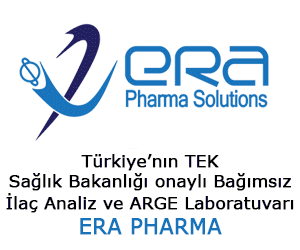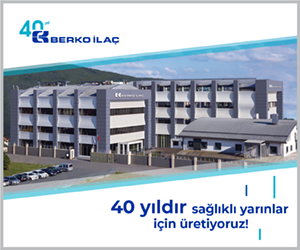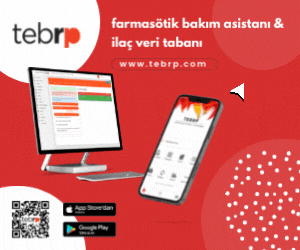İlaç şirketleri bir adım daha ileri adımlarla hasta merkezli ve sosyal sorumluluk alabilirler.
Sanofi UK tıbbi direktörü Dr Hubert Bland, “Bir ilaç topluluğu olarak, gerçek bir ortak olarak anlaşılan hastalarla gerçekten anlamlı bir şekilde ilgilenmeliyiz”
Following the burst of enthusiasm for patient-centricity and social responsibility that gripped the industry in 2015/16, such efforts have now, encouragingly, become quite routine for pharma. Even so, companies still feel that there’s a lot more work to do to make their patient-centricity efforts as good as they can possibly be.
“As a pharma community, we need to engage patients in a truly meaningful way that is understood as a genuine partnership,” says Sanofi UK’s medical chair Dr Hubert Bland. “I know that this sounds trite, but most people that work in pharma really want to resurrect the reputation of the industry because they genuinely believe they are doing something that benefits patients’ lives and could be transformative for healthcare in the UK.”
One way that Sanofi UK has begun to formalise its patient-centricity efforts is by putting together a Patient Association Charter to set out some clear goals and guidelines for working with associations.
“In the past I think pharma’s relationships with patient associations have been quite transactional,” says Henry Featherstone, the company’s director of public affairs, “so we’ve tried to reframe that and make it more about information-exchange – exchange of expertise, ideas, support in policy, engagement – rather than just saying ‘here’s some money’.
“With the charter we’ve tried to say what we guarantee to do, such as putting patient needs at the centre of our activities, striving for the highest standards of transparency and integrity, and clearly communicating with patients and organisations.
“We’ve had some very good feedback, partly just because we’re doing it at all and partly because we’re asking them about it.”
He adds: “I started working for Genzyme, the rare diseases side of the business, where it can be very different because sometimes you’ve got more people working on a drug than taking it. The first patient treated on a Genzyme therapy, who might have otherwise died as a child, is now a father and an ambassador for the organisation. You have a lot of individual patient stories like that, which are really important. And that’s how you start to really bring the work we do alive for someone in, say, the accounting department.
“We hope that individual, personal approach can become the norm across the entire organisation, not just for rare diseases. We just need to ask ourselves how we adjust our one-size-fits-all approach. Not much has to change – we just have to be consistent and true, and do what we say we will.”
The bond between pharma and patient associations has grown stronger and stronger in recent years, and pharma firms are increasingly employing workers from the sector. Merck’s Scott Williams, vice president, head of global patient advocacy and strategic partnerships, is one such example. He joined the company almost three years ago after having worked in patient associations for much of his career.
“It’s been so rewarding to come to Merck and build a team whose purpose is to bring the patient voice into the company to inform our efforts, make sure we’re making a valuable contribution to society and building meaningful collaborations that support the great work that these associations do,” he says. “That’s great to see as someone who used to work in patient organisations.”
He adds that Merck has made a “dedicated and driven” effort over the past three years to transform the way it approaches patient engagement, with his global patient advocacy team being a core part of this. “It’s always been a part of what we’ve done but previously it was done in a much more siloed fashion. Now we have one central coordinating point for the work, which has been transformative for us.”
Getting out there
A key pillar of Merck’s current patient engagement activities is its Embracing Carers initiative.
“The aim is to elevate the often-overlooked needs of carers and identify practical solutions to better support them. It’s a global advocacy movement being led by Merck in collaboration with carer organisations from all over the world,” Williams explains.“This topic kept coming up no matter what stakeholders we spoke with – whether it was patient organisations or government or regulators or payers – everyone kept saying that the needs of carers were being neglected and the care groups really validated that to us.
“There was a lot of common ground across every country, which led us to come up with a four-pronged approach that needed to be taken – creating more awareness with the media, bringing together other stakeholders with common interests like the disability community, making carers’ voices heard in the healthcare system, and opening up collaboration across the world.”
He adds that Merck’s position in the industry has allowed them to be a catalyst for a global initiative.
“We noticed that being one of the key stakeholders in the healthcare system globally was something that the groups really appreciated. It felt like Merck could serve as a rallying point to really bring people together.
“It has also allowed us to better incorporate the carer perspective across the R&D continuum. For examples, carer groups have said we should develop carer-reported outcomes, not just patient reported outcomes.”
Broader corporate social responsibility (CSR) efforts like this have become commonplace across the industry. For example, Sanofi UK now gives all their employees two days leave a year to go out and support the local community.
“It’s not necessarily linked to our disease areas – in fact it almost never is,” says Sanofi UK’s general manager, Hugo Fry. “There’s environmental activities, there’s supporting hospitals. When we had our last company conference we were supporting a charity that helps people back to work by getting them suited and booted for interviews. So everybody brought their old suits, shirts, shoes, dresses and handbags to give to this charity.
“It’s really important for both engagement with our employees and engagement with the community and making sure that Sanofi is an organisation that’s giving back and part of the community.”
Meanwhile AbbVie UK has been engaging with the future of the NHS with its ‘Patients as Partners’ awards, which recognise those who have made an exceptional contribution to the lives of patients and contributed toward a more sustainable health service. Each winning team also receives a bursary of up to £3,000 to spend on research to grow their own experiences and share best practice.
“We see that the NHS, social care and third sector is full of people with great capacity for coming up with new ways of working that improve things for patients and make the health service more efficient – but that getting those new ideas adopted requires huge personal commitment above and beyond their day jobs,” Phil Schwab, director of government affairs, and Zoe Horwich, head of sustainable healthcare initiative, tell PharmaTimes. “We wanted to do something that recognised the efforts of NHS and other public sector teams and also gave a platform that helped them to spread best practice. We know from feedback from our first year winners that they have been able to use the award as an opportunity to build relationships in their local health economy.
“Given the pressures facing the NHS it is really important for everyone with a stake in healthcare to support those directly engaged in patient care who are trying to reform healthcare from the grassroots and find solutions that will sustain the NHS into the future.”
And Patients as Partners is another example of a CSR initiative that has also had positive impacts for its associated pharma company. “It is giving us a perspective on the frontline of NHS care that we might not otherwise see and improves our understanding of how the health service is evolving,” say Schwab and Horwich. “This is great for our staff too and we have been highlighting the award winners in our employee communications.”
Astellas Pharma Europe’s Christina Chale, corporate communications director, says that employee engagement like this is integral to driving real social change.
“Employee engagement should be at the heart of any charitable programme; they should be led as much by your workers as it is by management. Too often, sustainability initiatives are so hidden within the organisation that the average employee doesn’t even know about them. We found that involving our employees in decision-making on the development of CSR initiatives and giving them the opportunity to see the impact the programme is having has been a great way to build internal champions.”
In Astellas’ case, they provided the opportunity for three star fundraisers across the company to win a visit to Kenya and see, first-hand, the impact of its ‘Action on Fistula’ initiative. Led by charity Fistula Foundation and funded by Astellas Pharma Europe, Action on Fistula aims to transform the lives of up to 4,500 women in Kenya suffering due to fistula by 2020. To date the programme has treated over 2,800 women and trained six fistula surgeons, and Astellas employees have raised €35,934 which will help fund additional treatment and care.
“We have returned from the trip as ambassadors of the programme, spreading the stories of the achievements through blogs, newsletters and photo diaries,” says Chale. “Our employees across Europe are proud of what we have been able to achieve together and, because of this, we have benefited as a business.”
Choosing the right CSR programme
Chale adds that successful CSR programmes are not about simply choosing a charity to work with – they are about developing a programme that can utilise the company’s strengths and expertise to achieve something distinct within society.
“Once you have established what the long-term objectives for your charitable giving are,” she says, “you can then consider partners who share your vision and will help you achieve those goals even after your involvement in the cause ends.
“Charity partners are the experts on how to achieve this change and therefore partnership is key to reaching objectives. They can also help you sharpen the focus for your initiative – be that by geography or audience.”
In order to establish programmes that will make a positive difference, she says, pharmaceutical companies must develop an approach that has clear links to their core business. “This can be done in a variety of ways, for example, by investing in education in your sector or using your expertise to tackle societal issues.
“It is also crucial to consider the long-term objectives from the beginning – what is the ultimate difference in society that we want to see? How can we ensure that this is achieved even after our support comes to an end? This way, you are considering the lasting legacy of the programme instead of focusing on what your organisation wants to achieve.”




















